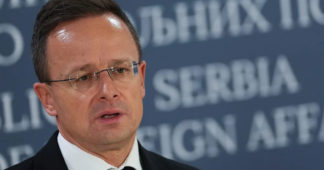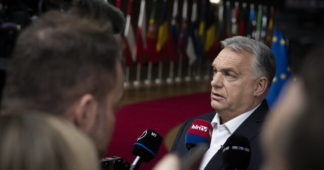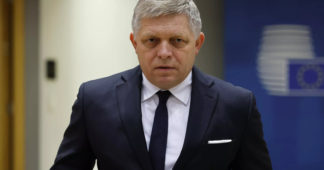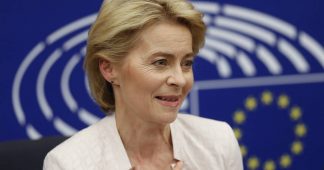Perspective next New German government wants to play bigger role in disciplining EU-member states which are holding dissenting views
The new German government plans to play a larger role in EU decision-making, including by punishing states that violate the bloc’s foreign policy. This is according to Politico. The outlet reports that the draft of a coalition agreement targets Hungary, which has resisted EU decisions on issues such as the Ukraine conflict and sanctions against Russia.
Currently, the Union (CDU/CSU) and SPD are still engaged in coalition negotiations. The designated partners are working to finalize agreements on key policy areas such as migration, climate, and EU relations. Reports suggest that CDU leader Friedrich Merz aims to form the new government before Easter on April 20.
One of the documents reviewed by Politico outlines Berlin’s plans for a more assertive EU strategy. It proposes leveraging the “Weimar Triangle”—a trilateral alliance of Germany, France, and Poland, which currently holds the rotating EU Council presidency—to influence the bloc’s direction and strengthen Germany’s voting rights.
The draft also states that Berlin intends to defend the EU against “internal and external enemies” by calling for punitive measures against member states allegedly violating principles such as the rule of law. Proposed sanctions include withholding EU funds and suspending voting rights.
“We will take even tougher action against violations,” the document states. “Existing protective instruments, from infringement proceedings to the withholding of EU funds and the suspension of membership rights such as voting rights in the EU Council, must be applied much more consistently than before.”
The coalition has also proposed the creation of a “comprehensive sanctions instrument” to rein in supposed dissenters, including replacing the EU’s foreign policy unanimity requirement with majority decisions to prevent countries from blocking measures like sanctions.
“The consensus principle in the European Council must not become a brake on decision-making,” the document asserts.
Although Hungary is not explicitly named, the draft agreement appears to be a clear allusion to the country, which has long been at odds with EU policy, including over its stance on the Ukraine conflict and sanctions against Russia.
Budapest has argued that the sanctions have harmed the bloc’s economy. The Hungarian government has submitted several motions to delay or weaken the measures or, in other cases, exercised its veto power. Prime Minister Viktor Orbán has repeatedly accused the EU of adopting a “pro-war” stance and pursued independent peace initiatives in the Ukraine conflict.
The European Union has already threatened to suspend Hungary’s voting rights. Brussels withheld around 22 billion euros in funds earmarked for Budapest in 2022, citing legal and judicial concerns, though it released roughly half of that amount last year.
We remind our readers that publication of articles on our site does not mean that we agree with what is written. Our policy is to publish anything which we consider of interest, so as to assist our readers in forming their opinions. Sometimes we even publish articles with which we totally disagree, since we believe it is important for our readers to be informed on as wide a spectrum of views as possible.











